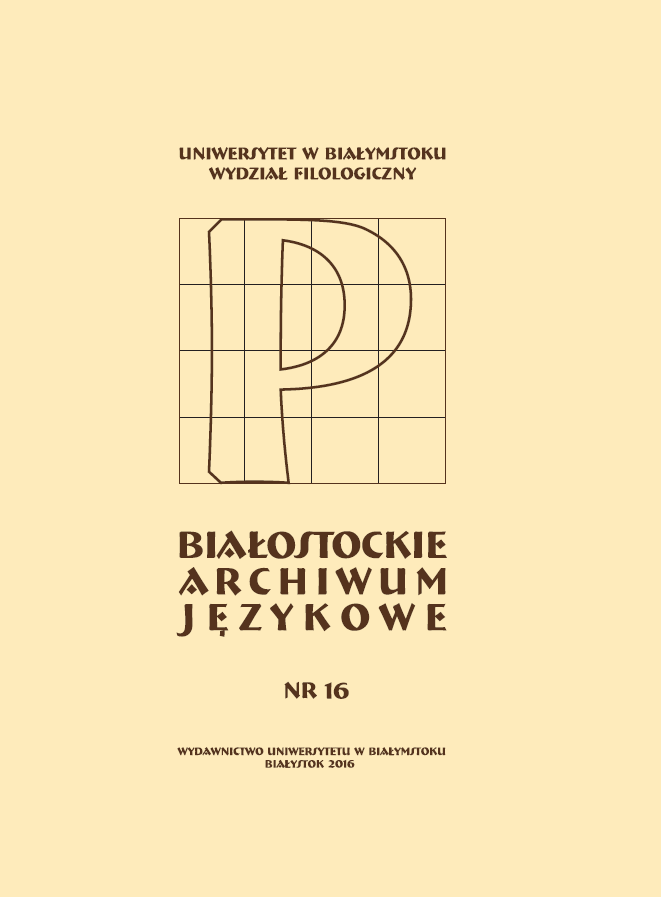Od ewangelika do protestanta. Dzieje leksemów w polszczyźnie
From Evangelic to Protestant. The history of lexemes in the Polish language
Author(s): Paulina Michalska-GóreckaSubject(s): Language and Literature Studies
Published by: Wydawnictwo Uniwersytetu w Białymstoku
Keywords: Reformation; Evangelic; Protestant; 16th century lexis
Summary/Abstract: Lexemes Evangelic and Protestant appeared in the Polish language in the middle of the 16th century. The name Evangelic was first used by Stanislaw Orzechowski in the work Rozmowa około egzekucyjej of 1563. The name Protestant was created in connection with the protest of Martin Luther’s followers at the Diet of Speyer and its only 16th century attestation comes from Marcin Kromer’s work Mnicha z dworzaninem rozmowa trzecia of 1553. This lexeme also functioned in the meaning not related to religious issues but resulting from the Latin basis. A general name applied in the 16th c. in relation to the Reformation’s followers was the lexeme Evangelic used, among others, by Bielski, Wujek or Skarga. At that time, apart from Evangelic, names reflecting internal diversity of the movement were in use such as, among others, luteran, luteryjan, luter, kalwinista, kalwinita, kalwin or auszpurczanin as well as general names such as konfessyjonista. In subsequent centuries the lexeme Protestant popularized in the first non-religious meaning as a synonym of an opponent. Dictionary resource material from the 17th and 18th centuries concerning the above mentioned lexemes does not allow to claim whether they became synonyms already in the Middle Polish period. The process of semantic identification of the lexemes finished in the Modern Polish period, which is confirmed by both the Polish language dictionaries and the most recent Polish language included in the National Corpus of Polish. It appears that such identification is a result of expiration of the first sub-meaning of the lexeme Protestant as well as an effect of the manner of defining this lexeme involving separation of a religious meaning from specified historical events. When the lexemes appeared in the 16th century, the lexeme Evangelic prevailed whereas currently the lexeme Protestant is more popular.
Journal: Białostockie Archiwum Językowe
- Issue Year: 2016
- Issue No: 16
- Page Range: 213-229
- Page Count: 17
- Language: Polish

